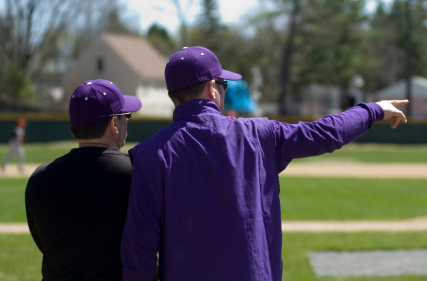As it has for the past thirty years, the National Federation of State High School Associations (NFHS) Coaches Association yesterday announced its 2011 National Coaches of the Year, honoring high school coaches in the top 10 girls and boys sports by participation numbers, along with one coach in another high school sport.
According to the NFHS, the awards are presented to individuals who have gone above and beyond and who exemplify the highest standards of sportsmanship, ethical conduct and moral character, and who carry the endorsement of his or her respective state high school association.
While I am sure all the coaches selecting are deserving, I have always been perplexed why coaches do the selection. It seems to me that the true measure of an honorable, fair and great coach is not how they are viewed by other coaches who perhaps play against their team, at most, a couple of times a season, and may know them more by reputation than any first-hand contact, but how players, managers, athletic trainers and even the parents experience the coach game after game, practice after practice.
To truly strengthen the quality of coaches at the nation's high school, I believe the NFHS should consider getting the input of each and every player, parent and support staff in which they are asked a series of questions about a coach, beginning with the question of whether the coach put the safety of players ahead of winning, and broken down further into questions about sexual safety, emotional safety, and physical safety.
Stakeholders should also be asked about:
- the coach's abilities as a teacher, both of the sport he or she is coaching and of good sportsmanship and fair play;
- whether he or she demonstrates respect for his players, game officials, opposing players and coaches, and the game itself;
- his ability to communicate with parents (for instance, did the coach establish expectations at a preseason meeting about playing time, team rules, and parent behavior, and communicate regularly with parents during the season?)

- how the coach handled conflict
- whether the players had fun, regardless of whether their won-loss record.
I just don't know if a panel of a coach's peers could possibly know the answers to these kinds of questions. It might be that many of the coaches selected by the NFHS would still end up at the top, but, more important, such evaluations would go a long way towards identifying coaches at the other end of the spectrum: the coaches willing to sacrifice player safety in the quest for a winning record or championship season, the coaches who physically, emotionally, or even sexually abuse, their players, the coaches who play fast-and-loose with the rules to win. In other words, the coaches who shouldn't, well, be coaches.
There are plenty of great coaches, and their achievements deserve recognition. But there are some who aren't so great. They, too, need to be identified, because as much as players remember a great coach, even decades later, the damage that a bad coach can do - the negative lessons they can teach - can also leave an impression that lasts a lifetime.
Questions/Comments? Reach me at delench@momsteam.com









